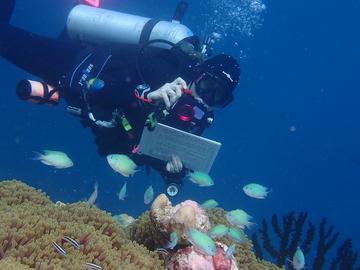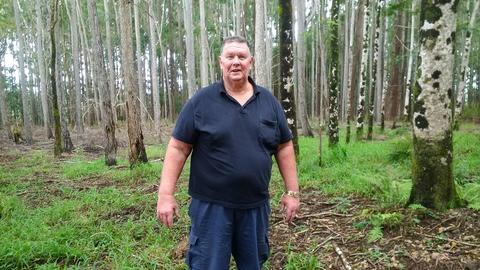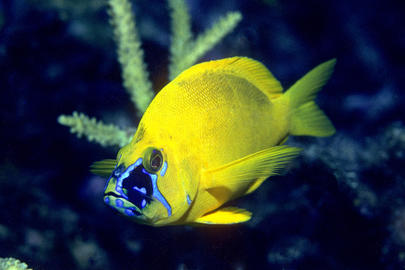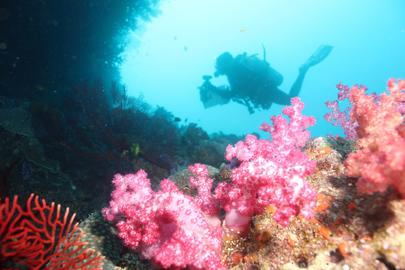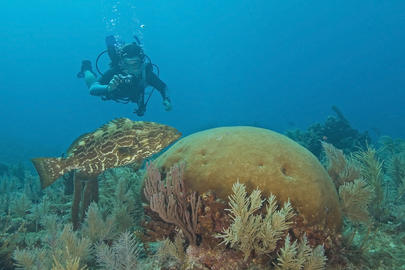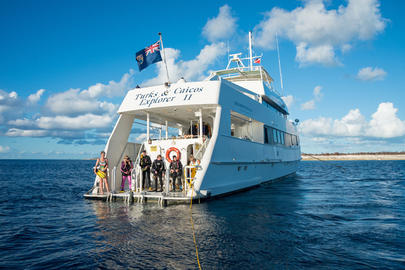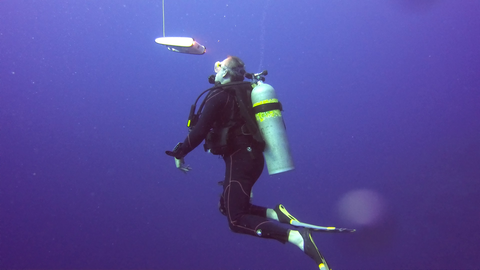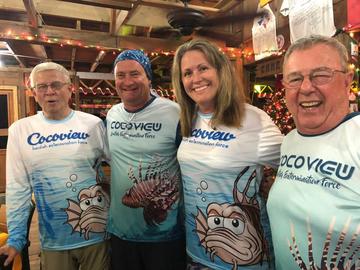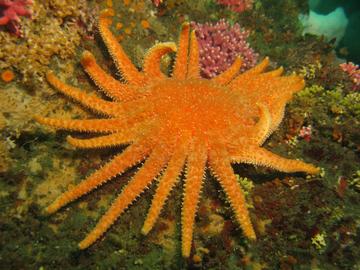This month, REEF is proud to highlight one of our outstanding Conservation Partners: Scuba Center in Eagan, Minnesota. REEF Conservation Partners are active organizations and dive shops dedicated to protecting marine environments. As valued REEF ambassadors, they teach fish ID classes, host survey dives, organize volunteer events and more. Read on to find out how you can get involved with these centers of conservation action!
REEF members are the heart of our grassroots marine conservation programs. A diverse community of divers, snorkelers, and ocean enthusiasts support our mission to conserve marine environments worldwide.
There's still time left to contribute to our winter fundraising campaign! As a special gift to donors who give at least $250, we will send you a limited-edition print of a Golden Hamlet (pictured), photographed in the Cayman Islands by REEF Co-Founder Paul Humann. We are so grateful to those who have already supported us this winter. Your generosity makes everything we do possible! To donate now, visit www.REEF.org/donate.
In July 2018, REEF celebrated the 25th anniversary of the Volunteer Fish Survey Project. This REEF program is widely considered to be one of the most impactful citizen science initiatives of its kind. With over 11 million data records from 14,000+ locations worldwide, it is the largest marine fish sightings database. The survey data have been used in a wide array of scientific studies, and serve an important source of information for government agencies charged with protecting ocean resources. As a REEF member, you make this monumental citizen science program possible!
To date, more than five million videos featuring the Florida Reef have been posted to YouTube. The most popular garner more than a half million views, making anyone who has the will to go diving a potential documentarian with the tools to make issues come alive for a global audience. These unscripted stories represent who we are, what we think, and what we choose to share with the world.
Although we are just one month into the year, our 2019 Field Survey Trips are filling up fast! Because of the great response, we have decided to add two new trips to the 2019 schedule: an invasive lionfish-focused liveaboard trip to Belize this June, and a fish survey liveaboard trip in December, to the Turks and Caicos Islands.
Thanks to the generous support of OpenROV and National Geographic, REEF received two Trident remotely-operated vehicles (ROVs) to advance our research on endangered Nassau Grouper and invasive lionfish.
This month, REEF is proud to highlight one of our outstanding Conservation Partners: CoCo View Resort in Roatan, Honduras. REEF Conservation Partners are active organizations and dive shops dedicated to protecting marine environments. As valued REEF ambassadors, they teach fish ID classes, host survey dives, organize volunteer events and more. Read on to find out how you can get involved with these centers of conservation action!
We are proud to share the newest scientific publication that includes data from the REEF Volunteer Fish Survey Project. The study, published last month in the journal Science Advances, used REEF data from the Pacific Coast to evaluate the massive decline of the Sunflower Sea Star (Pycnopodia helianthoides). The study's analysis included almost 11,000 REEF surveys collected by our citizen scientists from California to Alaska over the last decade.

